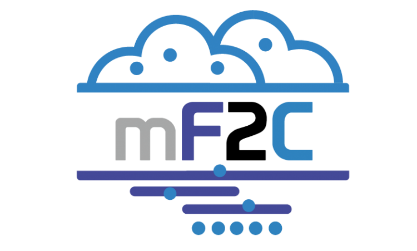This deliverable represents the third and final report of mF2C related activities in dissemination and standardization. In the interim period between the last version of this deliverable (D6.3) the project has maintained its monthly cadence of new blog entries together with the publication of a project Newsletter on a six-monthly basis during its third year. The sixth and final issue of the project’s newsletter was published in December 2019. The project maintained an active scientific publication record with 13 conference papers accepted during its third year. Over the three-year duration of the project, 225% of the target publication key performance indicator (KPI) was reached. Moreover, five additional papers were accepted in major peer reviewed journals which resulted in compliance with the overall KPI target for journal publications (KPI = 9 journal publications). Finally, the project had ten conference engagements with a further three pending in 2020. Overall the project achieved 120% of its event and conference participant KPI.
The project’s website maintained its importance as a key conduit for driving awareness of the project and disseminating its outputs. Traffic to the website has grown steadily over the last twelve months with a total of 13780 visitors over the three years comprising of more than 8600 unique visitors and more than 38000-page views. In an effort to enhance the projects’ visibility a Product Webpage was created to highlight the relevant business features of the mF2C framework and highlights the expected benefits of adoption. The project has continued its active social media presence over the course of 2019. On Twitter the project achieved 128K impressions, resulting in a total of 222K impressions over the projects three-year lifespan. The number of project followers has also increased with an additional 200 being added in 2019. Noteworthy progress was also achieved with respect to the number of tweets which reached 463 against a target of 300. Similar progress has been achieved with LinkedIn. The project also continued its open sourcing activities with an additional nine software modules being released via GitHub.
The role of standards in accelerating the development of technologies, catalysing technology innovation and driving technology adoption is critical. Given the diversity of technologies and the necessity to interconnect technology building blocks across diverse environments, the role played by standards is even more critical, particularly given the diversity of fog and cloud compute environments and their associated use cases. The mF2C framework (discover, interconnect, share, manage, etc.) requires a common understanding between technology blocks and formalised interfaces. Formal standards therefore have a central role to play in enabling this future, particularly since some consumers (e.g. public bodies, governments) will not take products not based on standards. mF2C has maintained its standards monitoring activities during the third year of the project. The focus has continued to be on monitoring standards initiatives by communities, by industry, and at regional and international levels, while looking for opportunities to engage where appropriate and practicable. The project has also targeted several standardisation engagements with groups such as ETSI MEC.
